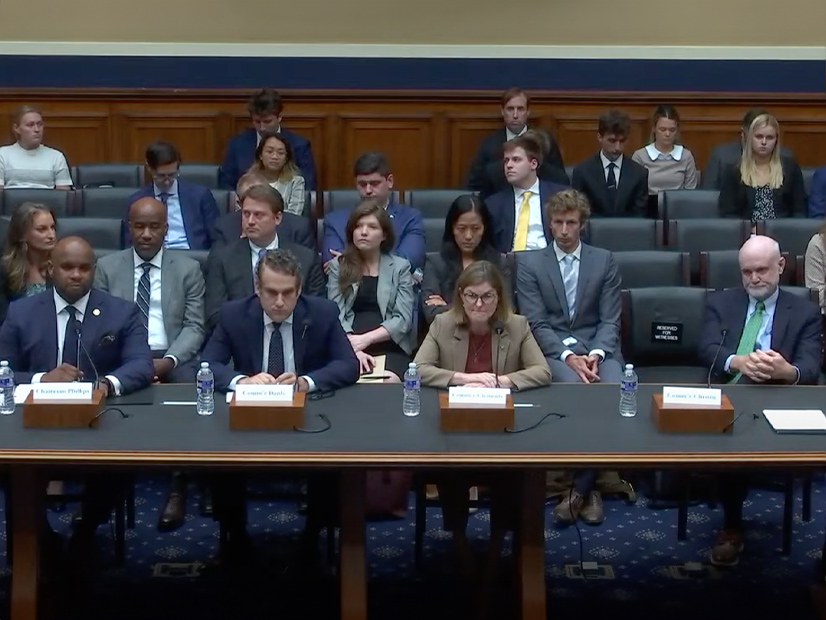
FERC’s two Republican commissioners told members of Congress on Tuesday that the U.S. is heading toward a reliability crisis driven by the rapid retirements of dispatchable fossil fuel-fired generators.
Appearing before the House Energy and Commerce Subcommittee on Energy, Climate and Grid Security, each of the four sitting commissioners painted a different picture of the state of grid reliability in the country. While they gave different critiques of the resource mix, Commissioners James Danly and Mark Christie had ominous outlooks, harshly criticizing FERC-approved market designs in the RTOs and ISOs.
“The United States is heading towards a reliability crisis in our electric markets,” Danly said. He cited two primary factors: “the effect of subsidies” for intermittent renewable resources, “and the commission’s, let’s call it, ‘abandonment’ of its longstanding commitment to the rule of law.”
“I think we’re headed toward potentially very dire, potentially catastrophic consequences in the United States,” Christie said. “The basic reason is we’re facing a shortfall of power supply. … The problem is not the addition of wind and solar. The problem is the subtraction of coal and gas and other dispatchable resources.”
The commissioners’ statements were similar to those they gave to the Senate Energy and Natural Resources Committee last month. (See Senators Praise Phillips, FERC’s Output at Oversight Hearing.)
Republican members of the subcommittee agreed, though they were eager to blame the Biden administration, particularly EPA’s newest proposal to reduce power plant emissions, for the impending doom.
“The commission must do more to resist such regulations that run contrary to its core mission,” proclaimed subcommittee Chair Jeff Duncan (R-S.C.). “Electric reliability has significantly degraded over the past few years. Blackouts and energy rationing are now commonplace in wholesale electricity markets like California and Texas. The nation’s largest grid operator, the PJM Interconnection, issued a dire warning earlier this year that it may face significant capacity shortfalls because of, in large part, rules like the EPA has proposed.”
“It’s essential the commission return to its core mission of facilitating the delivery of abundant, affordable energy resources, like natural gas and electricity, to Americans,” said Cathy McMorris Rodgers (R-Wash.), chair of the full committee. “FERC must resist calls by the radical left to circumvent the commission’s mandated priorities.”
Acting FERC Chair Willie Phillips (D) sought to assure the subcommittee that “reliability is, and always must be, job No. 1.” He listed several actions the commission has taken related to reliability and grid resilience since he took the helm at the beginning of the year, including directing NERC to develop new cybersecurity standards.
Phillips also said his highest priority “in the near term is to finalize a proposed rule that will greatly improve our processes for interconnecting new electric generating resources, reducing the time it takes to bring those resources online.”
Neither side of the aisle of the subcommittee gave that statement much attention. For their part, Democrats used much of their time to question how, if at all, FERC accounts for environmental justice when approving natural gas infrastructure.
Ranking member Diana DeGette (D-Colo.) did ask Phillips whether the recently enacted Fiscal Responsibility Act, which ordered NERC to study interregional transfer capability, would delay FERC’s work on the issue. (See Debt Ceiling Bill Provides ‘Mini-deal’ on Permitting.)
“NERC is directed to do a study under the debt limit deal; we also have an ongoing proceeding at FERC,” Phillips responded. “It is my belief that those two proceedings can move forward in parallel. … It is not my intention to wait” for NERC to complete the study.



